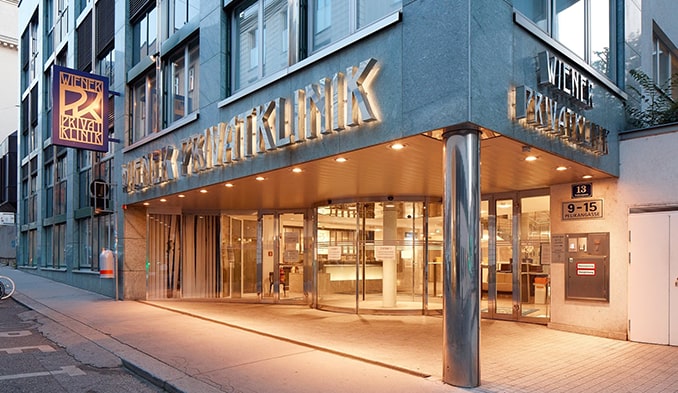Prof. Thomas Holzenbein talks about atrial fibrillation
How to recognize atrial fibrillation?
Cardiac arrhythmia, when noticed by the patient, is a symptom of atrial fibrillation, but it is also its most common form. Another symptom is loss of stability, with shortness of breath, sweating, chest pain, and difficulty falling asleep often seen. If it runs asymptomatically, it is detected during a prophylactic examination by a relevant specialist.
What causes atrial fibrillation? Is it genetically inherited?
Atrial fibrillation is not inherited. Risk factors for its development are:
- age;
- diabetes mellitus;
- kidney failure;
- hypertension;
- overweight;
- smoking.
Does the condition improve naturally over time or is specialist intervention necessary?
Specialized treatment is needed because the condition does not improve naturally. Conservative treatment is used, in which the heart rate is slowed and anticoagulation is done. Cardioversion as well as ablation therapy can also help.
Is there a result if atrial fibrillation is treated medically and when is this necessary?
Some complications, such as embolism and stroke, are also possible with this disease. To avoid them, special therapy is given immediately after diagnosis. In particular, to reduce the risk of embolism, anticoagulation is done. In this way, the clots that have formed are dissolved in the left atrium.
Is interventional medicine used in this condition?
In the early stages of atrial fibrillation, cardioversion and cardiac ablation give a very good result. However, when the disease is advanced, the results of cardioversion are not so successful.
Cardiac ablation and cardioversion - how do they differ?
Ablation for cardiac arrhythmia treats the cardiac pacing system in the atrium of the heart using a special catheter that is inserted into the femoral vein. This type of treatment is administered in an interventional cardiac catheter laboratory. On the other hand, cardioversion represents shock therapy for patients with cardiac arrhythmia, and is most often performed under deep sedation, with no requirement for a cardiac catheter laboratory.
Are other surgical treatments used?
Yes, other surgical techniques are used, but they are also applied in other cases. They are often combined with procedures such as bypass surgery, valve replacement and others.
How does the disease develop, what are the possible complications and what is the relationship between atrial fibrillation and stroke?
Atrial fibrillation may develop to such an extent that pacemaker placement is recommended. However, ongoing treatment is necessary and it is important that this is monitored by a cardiologist. In tachycardia, it is possible for clots that have formed in the left atrium to become loose, and thus enter the peripheral arteries of the body. If they reach the arteries of the brain, this can be the cause of a stroke. Half of all stroke cases are caused by this disease. To prevent the serious consequences of embolism, it is of great importance to remove the thrombus, by surgery or catheter ablation.
When we talk about atrial fibrillation, what is the relationship to physical exertion?
In patients with atrial fibrillation, exercise is not prohibited, but it is essential to consult a cardiologist before doing so. Sports activities such as fitness, swimming, etc. are recommended only when the disease is monitored regularly and medication is administered. However, when the patient also suffers from other diseases, it is better to limit these activities.
What is the relationship between age and morbidity?
Patients suffering from this disease are mostly people over 65 years of age. However, atrial fibrillation also occurs in younger people, who, however, are at greater risk of having a pacemaker inserted. Consultation with a cardiologist should not be delayed, as regular follow-up is necessary.
In how many patients suffering from other heart diseases is atrial fibrillation also seen?
Approximately half of people suffering from heart disease also experience the condition atrial fibrillation. When treatment is administered correctly, it most often does not change patients' survival. WPK, as well as other specialized hospital centers, offers patients specialized care.
About Prof. Dr. Thomas Hoelzenbein
Prof. Thomas Hölzenbein is an attending physician at the Wiener Privatklinik, specializing in general, vascular and surgical surgery. Today he has performed approximately 8,000 operations and has been part of humanitarian missions all over the world, including Armenia and the Urals.
CV and professional development:
- 1986 г:. PhD in general medicine;
- 1991 - 1992: training at the University Hospital of Surgery I;
- 1992 - 1993: studied vascular surgery at New England Deaconess Hospital, Harvard Surgical Service, part of Harvard Medical School, Boston, USA;
- 1996 - 1998: continued his training after obtaining the title of specialist in surgery;
- 1997: Passed the European Medical Specialist Examination (F.E.B.V.S) (UEMS) in Lisbon, Portugal;
- 1997: appointment as senior physician at the University Clinic of Surgery;
- 1998: received a certificate as a specialist in vascular surgery in Austria;
- 1999: awarded the venia docendi for surgery;
- 2000: Appointment as Associate University Professor of Surgery;
- 2006: appointed honorary member of the Faculty of Medicine in Sana'a (Republic of Yemen);
- Since 2006: assistant head of the department of vascular surgery and endovascular surgery at PMU Salzburg;
- Since 2008: Head of the Department of Vascular Surgery and Endovascular Surgery, PMU Salzburg.
Memberships:
- Honorary Member of the Faculty of Medicine of the University of Sana'a, Republic of Yemen since 2006.
- Until 2018 he was on the board of directors for vascular surgery and endovascular surgery at PMU Salzburg, Austria



